Jellyfish helliday turns toxic as ‘floating terror’ hits Phuket beach
Holiday hotspot on high alert after beach invaders wash ashore
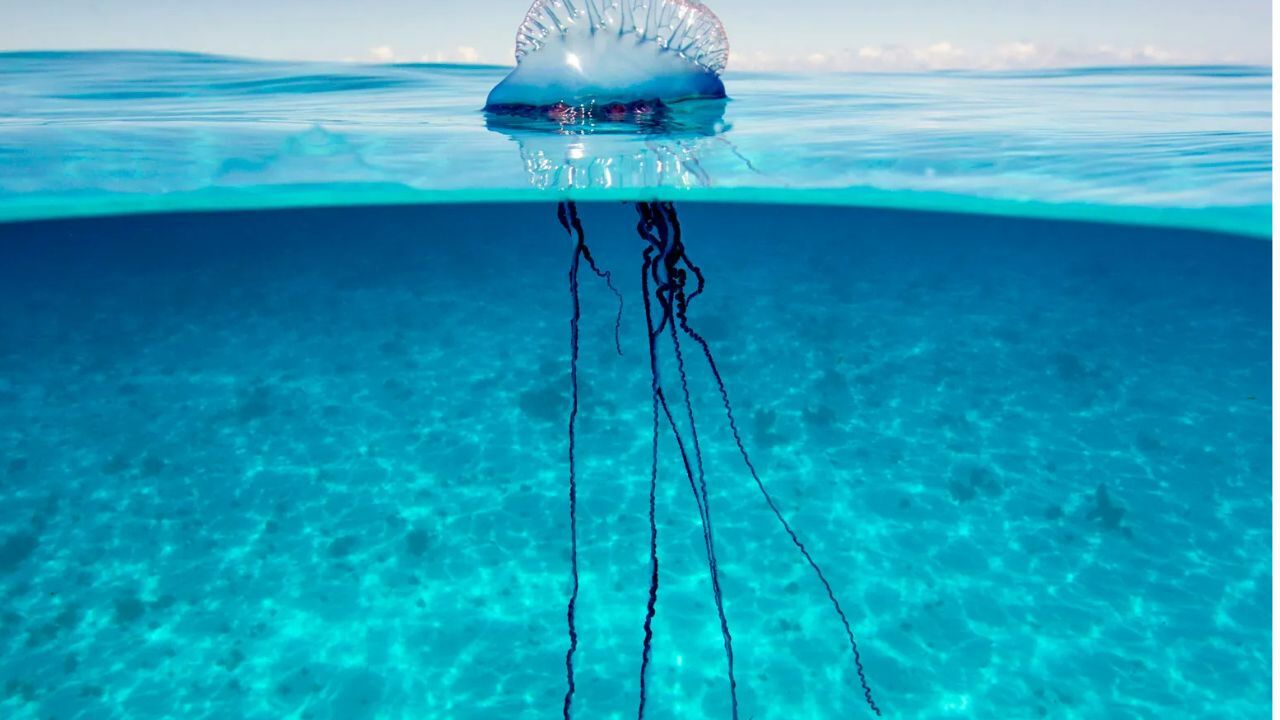
Tourists are being urged to look but not touch after a host of venomous sea creatures, including a notorious stinger dubbed the “floating terror,” washed up on a popular beach in Phuket.
Marine life officials have sounded the alarm after several dangerous sea critters, including the venom-packed Portuguese man o’ war, were discovered on the sands of Kata Noi Beach in Phuket.
The Department of Marine and Coastal Resources (DMCR) confirmed a range of hazardous species had been found after lifeguards and a coastal monitoring team raised the red flag on the afternoon of July 15.
Inspectors from the Andaman Sea and Coastal Resources Research Center identified two to three Portuguese man o’ war which, despite appearances, aren’t true jellyfish but floating siphonophores that pack a nasty sting.
“They look like jellyfish and they sting like jellyfish,” a DMCR official warned. “The umbrella-like shells we found were around one to 2 centimetres in size, but don’t let that fool you, they can still cause serious pain.”
Also spotted were blue sea dragons (Glaucilla sp.) – dazzling but dangerous. These tiny electric-blue creatures feed on venomous jellyfish and recycle their toxins, making them capable of delivering a powerful zap to unsuspecting swimmers.
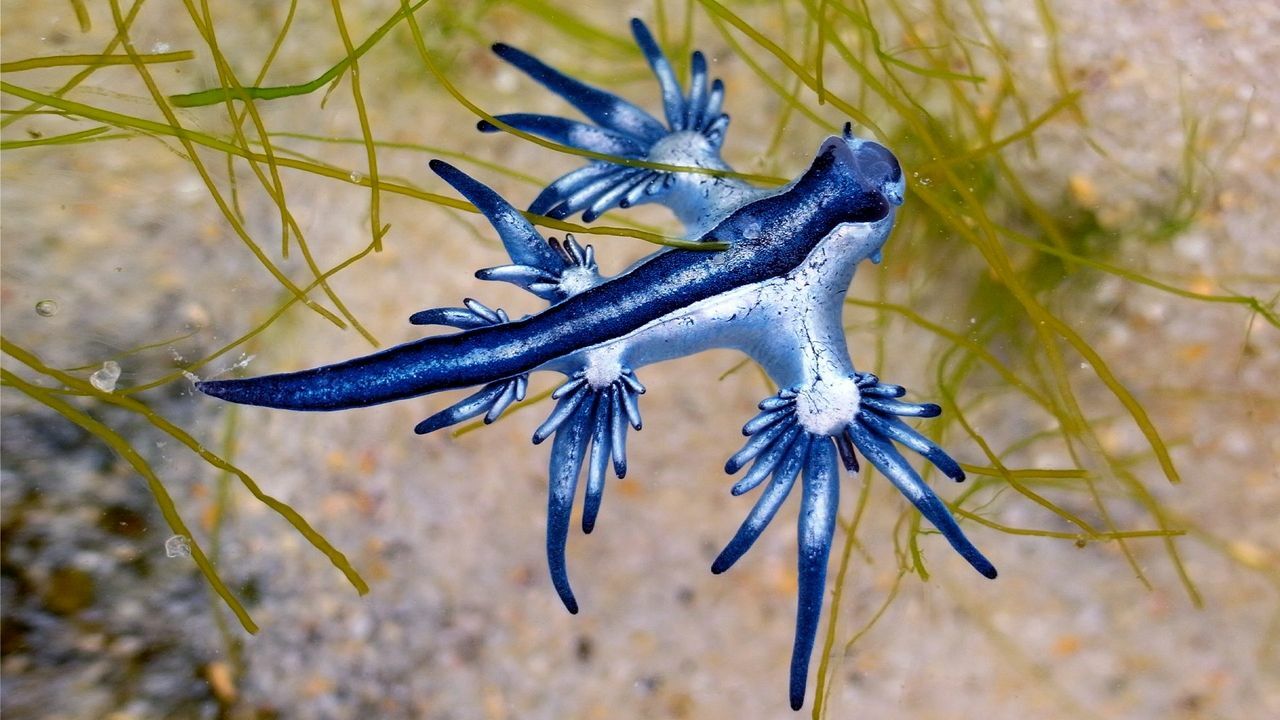
Adding to the mix were spectacled jellyfish, better known as ‘blue button’ jellyfish, and by-the-wind sailors (Velella velella), which may be less harmful but can still cause skin irritation.
Officials believe the sudden invasion is down to recent rough seas, with strong winds and waves up to 2 metres high likely pushing the creatures ashore.
Over at Karon Beach, lifeguards confirmed more of the same: blue dragons, blue buttons, and by-the-wind sailors were all still floating near the shore, Phuket News reported.
The DMCR is urging holidaymakers, locals and beach businesses to keep their distance from any unknown sea creatures on the sand or in shallow waters. Warning signs are being put up, lifeguards are on red alert, and safety advice is being shared through local networks.
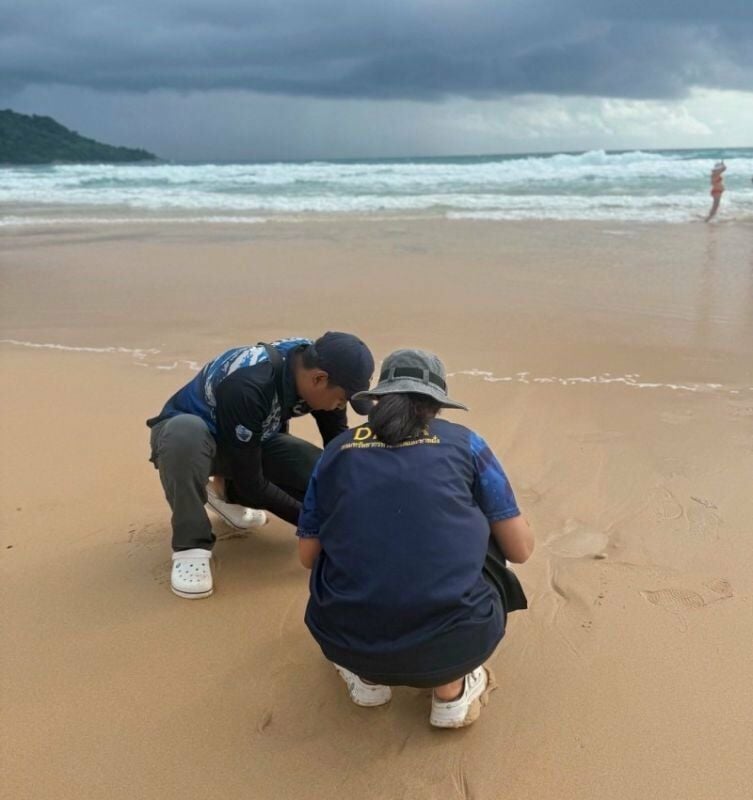
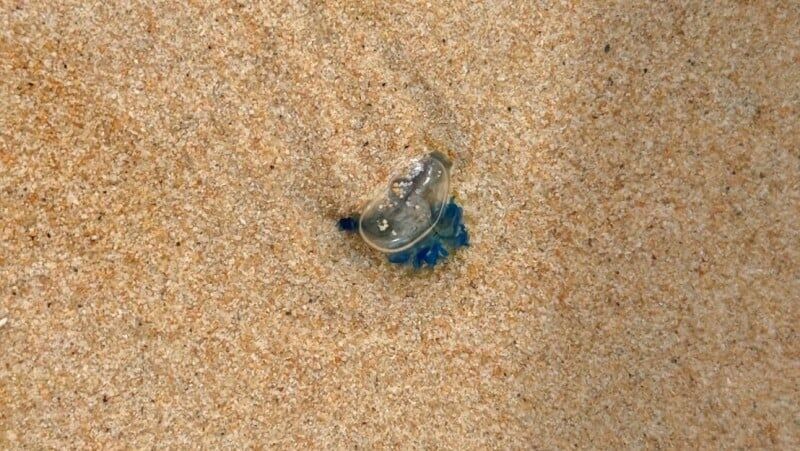
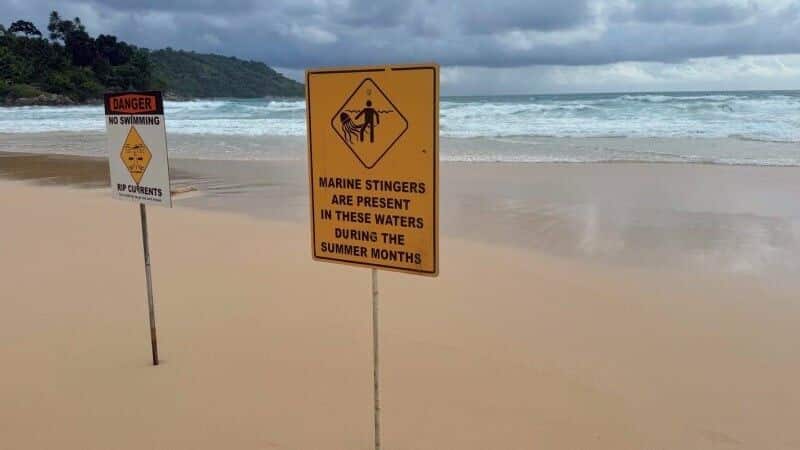
Monitoring teams have been told to keep an eye on jellyfish activity and record any stings. First-aid leaflets are also being circulated, including instructions to rinse stings with vinegar and avoid freshwater or rubbing the area, which can make things worse.
“Seek medical help straight away if you get stung,” the DMCR stressed.
With jellyfish blooms often triggered by seasonal changes and warmer waters, officials warned more incidents could follow. Patrols are ongoing and tourists heading to Kata, Karon, or nearby beaches are being told to check beach flags and speak to lifeguards before heading into the surf.
Latest Thailand News
Follow The Thaiger on Google News:


























